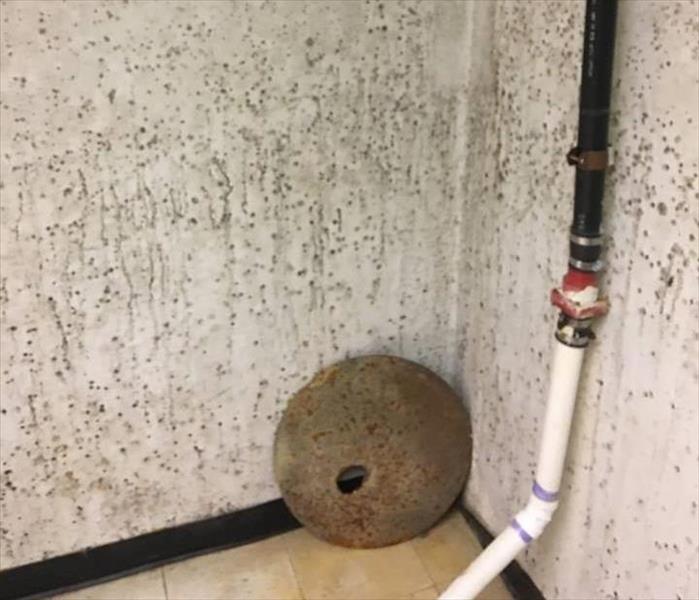Understanding "Black Mold".
5/20/2019 (Permalink)
Stachybotrys chartarum is the type of mold often called “black mold” or “toxic mold”. Sensational news reports warn about the dangers of black mold and these stories can be alarming and confusing. Any mold in your home should be treated with caution – stay out of affected areas and don’t touch or disturb the mold.
Please refer to our Mold Damage Tips to learn more about mold and what to do until help.
How Do I Tell If It’s Black Mold?
Since many types of mold can produce allergens and irritants, you should contact a qualified mold remediation company regardless of the color or type of mold. In many instances, multiple types of mold can exist in the same house or structure. If you suspect that you have a mold problem, contact a SERVPRO Franchise Professional immediately.
If You See Signs of Mold, Call Us Today (847)498-8889
Understanding Mold
When water intrudes into your property, mold growth can start in as little as 48 hours. Consider the following mold facts:
- Mold is present almost everywhere, indoors and outdoors.
- Mold spores are microscopic, float along in the air, and may enter your home through windows, doors, or AC/heating systems or even hitch a ride indoors on your clothing or a pet.
- Mold spores thrive on moisture. Mold spores can quickly grow into colonies when exposed to water. These colonies may produce toxins harmful to humans and pets.
- Before mold remediation can begin, any sources of water or moisture must be addressed. Otherwise the mold may return.
- Mold often produces a strong, musty odor, and that odor can lead you to possible mold problem areas.
- Even higher-than-normal indoor humidity can support mold growth. Keep indoor humidity below 45 percent
If you need help identifying and removing black mold, call the professionals at SERVPRO of Northbrook/Wheeling/Glencoe at (847)498-8889 today!




 24/7 Emergency Service
24/7 Emergency Service
